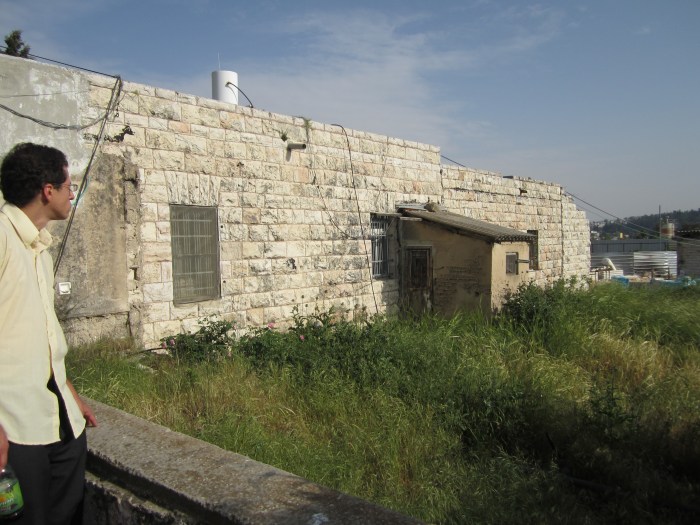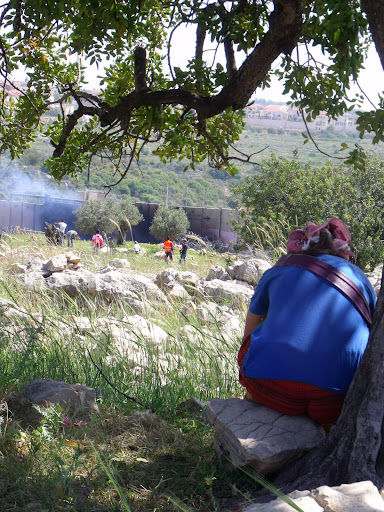Category: In the Media
-
Deir Yassin: The peace that never was
10 April 2012 | The Habal Factor Two days ago, we visited Deir Yassin, or to be more specific, what remains of Deir Yassin, with Zochrot, an Israeli organization dedicated to educating the Israeli public about the nakba. The tour was organized in commemoration of the Deir Yassin massacre. We walked along the main street…
-
Spring time in Ni’lin: Photos of the demonstration
by Maxine Kaufman-Lacusta 6 April 2012 | Refusing to be Enemies: The Book I’m a bit slow at writing things up, so in the meanwhile, here are some photos of this past Friday’s action in Ni’lin. To me the the most vivid pictures were the shebab, including boys who looked as young as 12 , symbolically…
-
Israeli soldiers arrest 20 in a pre-dawn raid on Kufr Qaddoum
by Abir Kopty 5 April 2012 | Popular Struggle Coordination Committee During the raid, soldiers pillaged jewelry and caused extensive damage to houses. Residents are certain that arrests were made to quash regular protests in the village Massive numbers of Israeli soldiers staged an extensive pre-dawn raid on the West Bank village of Kufr Qaddoum…


